
by Mark Yon
Scenes from England
Hello again!
It is getting to be a routine now, but the issue that arrived first in the post this month was Science Fantasy..

The covers by Keith Roberts are still an acquired taste, but his art is starting to grow on me. Compared with some of his other efforts, I quite liked this one! It clearly illustrates Brian Aldiss’s lead story this month.
This month’s Editorial is for the second month by someone other than Kyril – where is Kyril, I wonder? Surely not still star-gazing? Nevertheless, it is another interesting one. Brian Stableford is an up and coming fan who has his first story published in this issue. As a fairly new “neo-fan”, it is his turn to try and define science fiction in the Editorial in the form of an open letter. It’s a good attempt, thoughtful and seemingly well-read. I expect to read more from this young man, who I believe is only about 18 years old.
To the actual stories.
The Day of the Doomed King, by Brian W. Aldiss
Serbian King Vukasan is wounded and in retreat after being defeated by the Turks. With his General he sets out for the Turkish capital city, but sees what he regards as an ominous omen – a magpie with a lizard in his mouth, which then dies. Troubled by this Vukasan detours to a monastery to seek understanding. There Vukasan gets two opposing visions. One is of a Serbian Empire, greater than ever, the other where the Turkish army triumph and effectively erase the memory of his monarchy. There is then a twist in the story, which you may find either intriguing or annoying, but for me the story ended satisfactorily.
Brian has been a continuous presence in the magazines this year, as a writer, commentator – and Dr Peristyle! One of the things I have noticed is the range of material showcased. Some his works are clearly science fiction and others much less so, some horror, some psychological study and even some comedy.
This one emphasises the Fantasy aspect of Brian’s work, and makes an interesting counterpoint to Robert Burnett Swann’s The Weirwoods, also in this issue. Like Burnett Swann’s tale, this is knowingly literate, written in a style clearly determined to evoke a sense of earlier times. Although Aldiss’s world is traditional Middle Ages fantasy (the back cover calls it a “tale of ancient Yugoslavia”), rather than something older, I was impressed by how much the tone of the story is set through its lyrical language, like Burnett Swann’s so often is.
For me King was one of Aldiss’s better efforts of late and shows the reader how good he can be. Whilst I suspect your enjoyment of the story will depend on how convinced you are by the ending, I enjoyed it very much. A strong start to the issue. 4 out of 5.
The Saga of Sid, by Ernest Hill
Ernest’s latest is one of his efforts to write lighter humorous tales. It is initially about a vicar who, whilst watching a baptism finds that the baby, about to be called Sid, speaks to him. Understandably chaos ensues, and a bell-ringer, who is also a local reporter and who also heard the baby talk, tries to kidnap him and sell him to a circus owner. Sid, realising a scam in action, acts like a typical baby until the men have gone. Having survived all of this, it becomes clear as Sid grows up that he is unusual. He talks of Asgard and other non-worldly things in such a way that his mother, believing him to be possessed, attempts to instigate an exorcism. The consequence of this is that during the exorcism a flying saucer appears to Sid, and Norse gods Odin and Frigg take back from Sid the soul of Baldur. This leaves him as a ‘normal’ child in the end.
This one is as silly as it sounds, but long-winded to boot. For those who find the thought of a child named Sid funny. Not for me. 2 out of 5.
Beyond Time’s Aegis, by Brian Craig
Although the story is published here as by “Brian Craig”, it is really written by two writers, Craig A. Mackintosh and Brian Stableford (who I mentioned before.) Having enjoyed the Editorial by Stableford, I was expecting great things from this novella. But, oh, this one starts badly, so much so that initially I thought that the first paragraph was meant to be a parody of epic space opera. No, its pompousness and pretentiousness is genuine.
To be fair, once past this ominous beginning, the tale settles down a little, although throughout I kept feeling that at any moment the story could disappear into a pool of its own portentousness.
The story begins in the style of a medieval-esque fantasy, yet we soon realise that this is some sort of post-apocalyptic world where travel between worlds is possible and there are mentions of technology beyond the imagination of most of the people there. It is about someone who calls himself “The Firefly”, who I at first thought was a satire of Asimov’s character “The Mule”, who is on a quest to find the “Man Who Walked Through Time” who The Firefly believes can transport him back in history to a time where this world was not in decline.
On his journey The Firefly meets a diverse variety of odd characters, who all seem to spout strange homilies and portents.
It has an almost Elric-esque tone to it, but is weighed down by the ominously weighty words of great meaning the characters seem to give at every opportunity. Each character is an allegory of something else, which becomes a little wearying. It also doesn’t help that towards the end one of the characters strangles a dialect so well that he could give Keith Roberts’ Granny Thompson a run for her money.
Far too long, and rather too derivative of Jack Vance’s Dying Earth stories for me, it is better by the end, but clearly a debut work, and an overworked one at that. 3 out of 5.
The Wall, by Josephine Saxton
A newcomer, but again nice to see a woman author in this male-dominated bastion of genre. And this was interesting, if odd. One of those allegory-stories about a city at the bottom of a saucer-shaped valley with a wall running through the middle bisecting the circle.
Two lovers, whose only contact initially is by touching hands through the wall, decide to escape the valley together, only to come to a sticky end. Weird yet vividly written, if bleak. 3 out of 5.
Yesterdays’ Gardens, by Johnny Byrne
Either I am starting to get more acclimatised to Johnny Byrne’s odd stories, or he is just getting better at writing them. This is another I quite liked. Uncle Ernie is told by a young girl of the man who lives in a silver cup in the garden. As the story progresses, all is not what it seems as we discover some sort of post-nuclear holocaust has happened. 3 out of 5.
The Weirwoods (Part 2 of 2), by Thomas Burnett Swann
We ended the first part on a bit of a cliff-hanger where the mythical creatures of the Weir were about to attack the human city of Sutrium to free Vel the Water Sprite and take some sort of revenge on the humans there.
This story begins with Tanaquil watched over by cats. She is freed by witch-queen Vegoia, who explains that a spell by Vel meant to use the city cats to disable the guards has actually led to a massacre in Sutrium. She takes Tanaquil to Arnth and encourages them to escape the city. Tanaquil, after finding her father dead, agrees. The slaves, now freed, have revolted and the journey is difficult. Vegoia finds a secret way through the forest for them to safety. At the lake they meet Vel again. Vegoia seduces Arinth, much to Tanaquil’s jealousy.
Vegoia then sends Arith to make love to Tanaquil, but is rejected by her, not wanting to be one of Vegoia’s cast-offs. Vel appears and attacks Tanaquil, but is killed. Tanaquil grieves. We discover that Vegoia is ill and she eventually dies. In the end, Vegoia and Arith, now a couple, leave for Rome to start a new life.
The second part of this serial is shorter than the first, and not quite as enjoyable, although there is much in this part to like. Burnett Swann’s descriptions of the Weir Ones' way of life are as poetic as ever, but I found the ending somewhat sad. Whilst the humans are happy, the death of Vel and Vegoia leave a sadness as their lives have been changed by dealing with humans. Whilst Vegoia has shared love with Arith, Vel in particular is an innocent who would have continued a happy and contented life had it not been for the interference of humans.
Nevertheless, though the second half did not quite match the set-up of the first part, it is undeniable that Burnett Swann’s story still has a lyrical magic that many others seem to lack – although Aldiss has a good stab at emulating it with his story this month. For that reason, still 4 out of 5.
Summing up Science Fantasy
A mixture of odd tales this month. I enjoyed the Aldiss story the most, although I suspect the twist at the end will make some readers groan. Whilst Thomas Burnett Swann’s serial was good, I did feel that it did not quite hold the potential that the first part suggested it would. The rest of the issue is, like last month, not really bad, but often not for me.
The Second Issue At Hand

This month’s editorial from Mike Moorcock starts by praising an author I’ve never heard of before in his attempt to broaden our literary knowledge. Alfred Jarry is “the father of the literary surrealist movement” and given Moorcock’s enthusiasm for such stories he is therefore effusive in his review of a recent collection. He then goes on to point out that, like issue 152, the emphasis this month is on new, young writers.
To the stories!
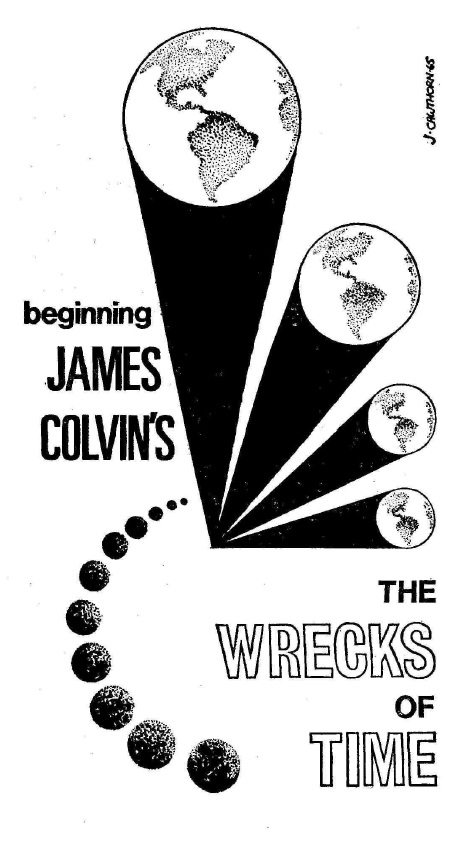
Illustration by James Cawthorn
The Wrecks of Time (Part 1 of 3)), by James Colvin
In his Editorial Mike Moorcock states that James Colvin’s (who is also Mike Moorcock, don’t forget) serial is “pretty straightforward stuff”, and it is, but I liked it. It’s not particularly new but I like the premise that there are fifteen alternate Earths, all in slightly different stages of development. Our hero, Professor Faustaff (clearly influenced by Shakespeare’s Falstaff) travels his way through them all with a group of varied assistants. He is in constant conflict with his nemesis Herr Steifflomeis and the nefarious D-Squad, who for reasons initially unknown seem determined to attack Faustaff’s teams and cause chaos, destroying alternate Earths by creating Unstable Matter Situations (UMSs).
This one is straight out of Doctor Who with a bit of The Avengers or even your Man from UNCLE thrown in, the sort of free-wheeling caper not too adrift from the old pulp fiction of yesteryear, but given a modern sensibility. It also helps that I liked Faustaff, who appears to me as a much more likeable version of Heinlein’s Jubal Harshaw. (I have a sneaking suspicion that this is Moorcock’s version of a Heinlein novel.) Not to be taken seriously at all, and great fun. But why write it as Colvin instead of Moorcock? I can see this one working in the same way that Moorcock’s Jeremiah Cornelius does. I’m pleased to read that it continues next month. 4 out of 5.
The Music Makers, by Langdon Jones
Time for Moorcock’s second-in-command to do some writing instead of editing. Set on a colonised Mars with ancient Martian cities straight out of Ray Bradbury’s Martian Chronicles, the story is based around a musician who after performing the Berg Violin Concerto tries to come to terms with the importance of music. This is an ambitious tale, if limited by the fact that it is trying to describe the emotions generated by music in prose. The ending is a little overdone. 3 out of 5.
Until We Meet, by Colin Hume
A story of people who have lived for thousands of years, with an ending straight out of Brian Aldiss’s story in Science Fantasy. There are some nicely written parts, but that conclusion is grim. 2 out of 5.
Time’s Fool, by Richard Gordon
The latest story by Richard Gordon (last seen in July’s New Worlds with A Light in the Sky) is one that, like Good Night, Sweet Prince by Philip Wordley in last month’s Science Fantasy, revisits history by using a famous person. Last month it was Shakespeare; this month it is a person more infamous – the Marquis de Sade. A person perhaps best known for his perverse sexual predilections, this story gives de Sade chance to answer his accusers as he is put on trial in order to address the rather grotesque impression people have of him being one of the most evil men who has ever lived.
I liked the general idea, but felt that its purpose was more to shock than to debate de Sade’s ideas, which it does. De Sade actually comes out well from the experience. It reminded me of Moorcock’s recent story The Pleasure Garden of Felipe Sagittarius which used Hitler and Eva Braun in a similar way, as characters in the story. (Hitler even gets mentioned in this one.) This time around, prepare for “New Worlds Magazine writes positively about old pervert!” type headlines. Provocative and readable. 3 out of 5.
Night Dweller, by Terry Pratchett
A new author to me. I gather that Terry is very young – Moorcock mentions that he is sixteen in the Editorial – and if this is so, then this is an impressive story for someone his age. It is the tale of a suicide run, three men on their way to destroy an all-encompassing world eater passing through the Solar System, knowing that it will cost them their lives. Quite effective. 3 out of 5.
50% Me, At Least, by Graham Harris
After an accident, Bob Forton is restored to health to find that half of his body has been restored by artificial replacements. His outpouring of emotion at surviving is regarded as an anomaly by the doctors and nurses looking after him. An interesting one this, in that it deals with the issue of disability and makes the reader question how much of a person’s personality is based on their physical attributes rather than their other characteristics. It’s a shame I guessed the ending before-hand – the title rather gives it away. 3 out of 5.
Cultural Invasion, by Charles Platt
After his evisceration of Heinlein’s A Stranger in a Strange Land last month, Charles is back with some writing of his own this month. His last story, Lone Zone, was generally well-received, a gritty story of post-apocalyptic gangs. This time around, it’s a ‘humorous’ story of the consequences of a Russian spaceship, with cosmonauts aboard, landing by accident in Willy-in-the-Mud, a village in rural Hertfordshire. For a story so frenetic in action it is surprisingly mundane, with a weak twist in the tale. 3 out of 5.
Book Reviews, Articles and Letters
After a few issues of few book reviews, Moorcock promised in his Editorial that there would be more this month. And so there is – there are reviews of Fifth Planet by Fred Hoyle, (“better”, but not to James Colvin’s tastes), Cat’s Cradle by Kurt Vonnegut, which I thought would be more typical of Colvin’s interests, but is given grudging praise here.
Frederik Pohl and C.M. Kornbluth’s collaboration The Space Merchants is recommended for light-reading. Theodore Sturgeon’s More Than Human is given a tremendous thumbs-up as “his best work yet.” Jules Verne’s Journey to the Centre of the Earth is reissued in its best translated version so far, Eric Frank Russell’s Men, Martians and Machines story collection is all “readable, well-polished jobs”, if too American in style for Colvin’s tastes.
Surprisingly, John Carnell’s collection of horror stories, Weird Shadows from Beyond was found to be better than expected – “not the usual old rubbish at all”. How much of this positivity is based on Moorcock’s appreciation of Carnell I was less certain about. Martin Caidin’s Marooned was “a bore” to read, Prodigal Sun by Philip High has little of merit other than to have a good cover. The Demons by Kenneth Bulmer is “Bulmer at his best.” Lastly, Colvin can’t resist reviewing himself as he reviews Blades of Mars by “E.P. Bradbury”, although his criticism as “harmless and unpretentious enough” is quite refreshing.
Hilary Bailey reviews the “lively, varied collection” New Writings in SF 5 edited by the aforementioned John Carnell. Continuing the standard set by Charles Platt last month it may be unsurprising to regular readers to find that Farnham’s Freehold by Robert Heinlein is ”not.. a very good book.”
But no Dr. Peristyle this month.
Alan Dodd reviews a Russian science-fiction film, Cosmonauts On Venus, which is better than it sounds, even if the best actor is a robot.
Summing up New Worlds
I said last month that I hoped this issue would be a fresh start. And so it is. Moorcock admits at the beginning of this issue that this is an issue full of promising new potential rather than well-known authors, and he has kept to his word. There were surprises in this issue for me. The Pratchett was a surprise, as too the de Sade story, even if they tread familiar territory.
Nevertheless, whilst I agree that new talent should be nurtured, my overall impression this that this is an issue that smoulders rather than sparkles. There’s a lot I liked, but none that I really loved.

Summing up overall
As much as I liked the Colvin serial (so much more than Harrison’s recent effort!) the two big stories of Science Fantasy from Aldiss and Burnett Swann make Science Fantasy an easy winner this month for me.
As I type this it is nearly Halloween, one of my favourite times of the year. I hope that your celebrations are glorious and everything that they can be.

Whilst the Beatles collect their MBE's, WHO's playing at the Cavern this Halloween?
Until the next…

![[October 26, 1965] Mythology and Multiple Earths <i>Science Fantasy</i> and <i>New Worlds</i>, November 1965](https://galacticjourney.org/wp-content/uploads/2020/10/nw-sf-November-1965-672x372.jpg)

![[October 22, 1965] Yesterday, Today, and Tomorrow (November 1965 <i>Fantastic</i>)](https://galacticjourney.org/wp-content/uploads/2020/10/Fantastic_v15n02_1965-11_Lenny_Silv3r_0000-2-672x247.jpg)




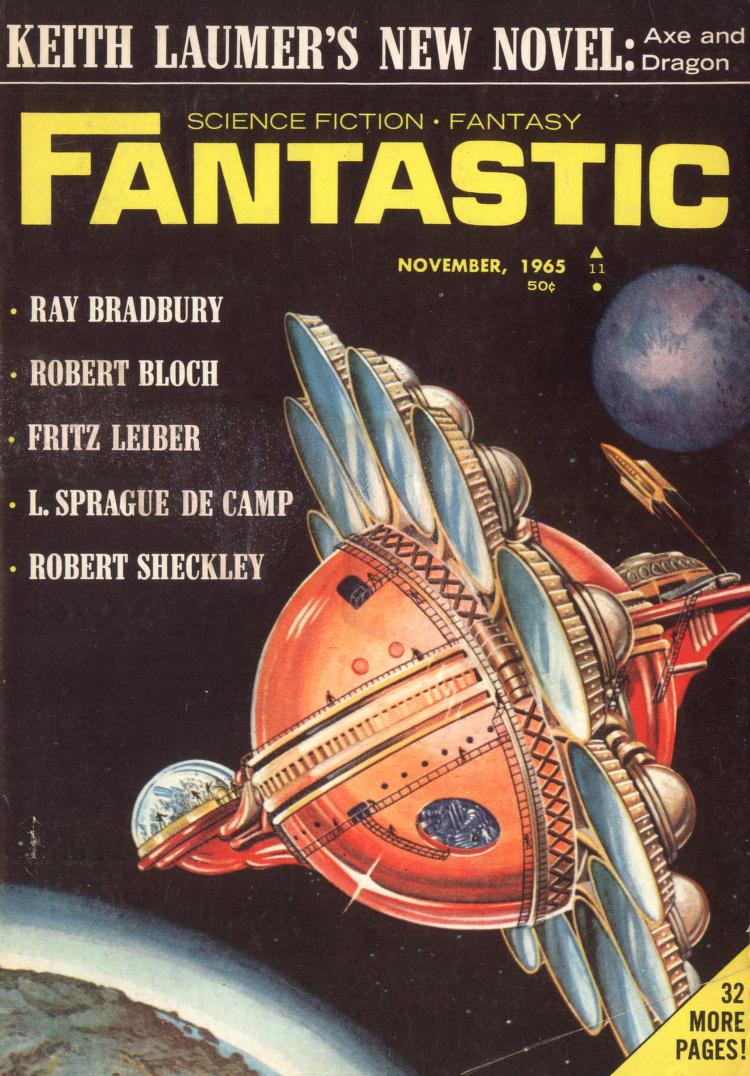

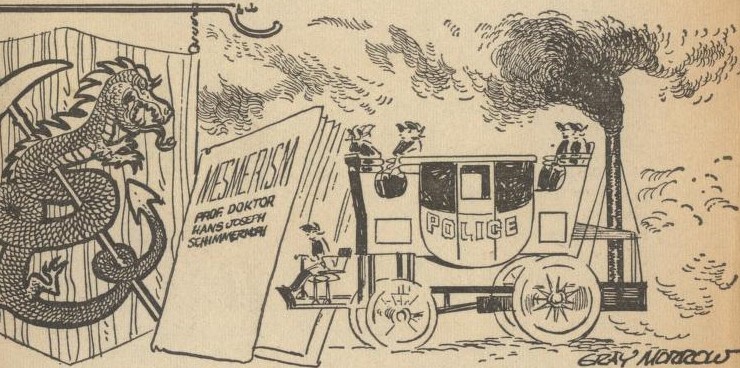
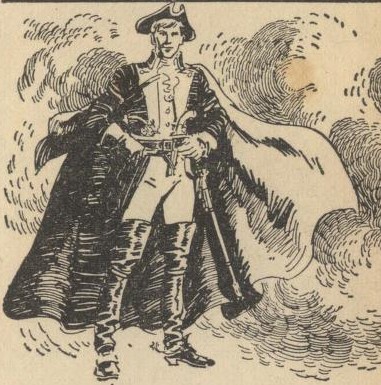

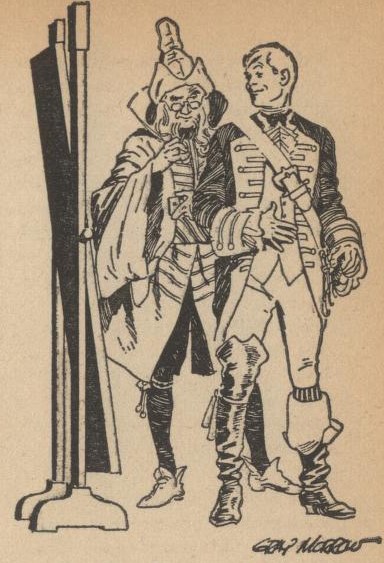
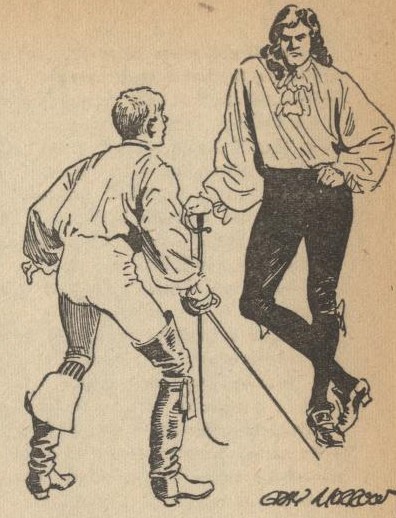

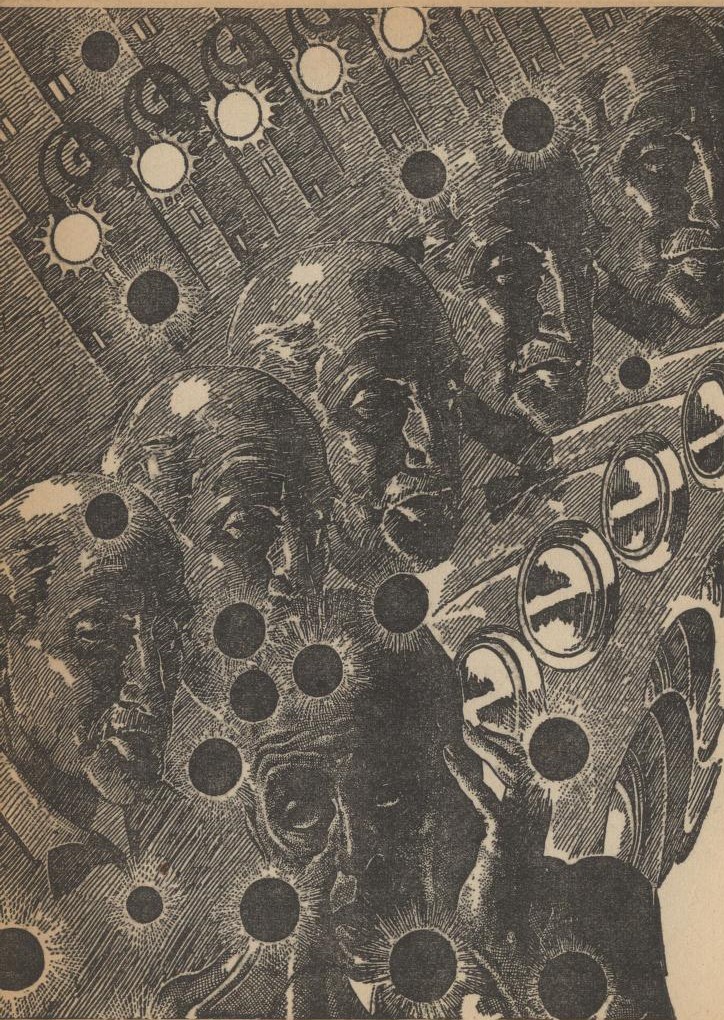
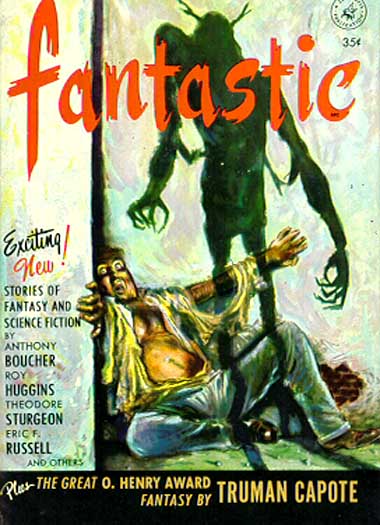

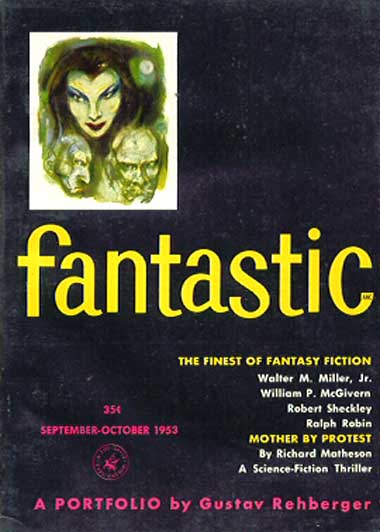



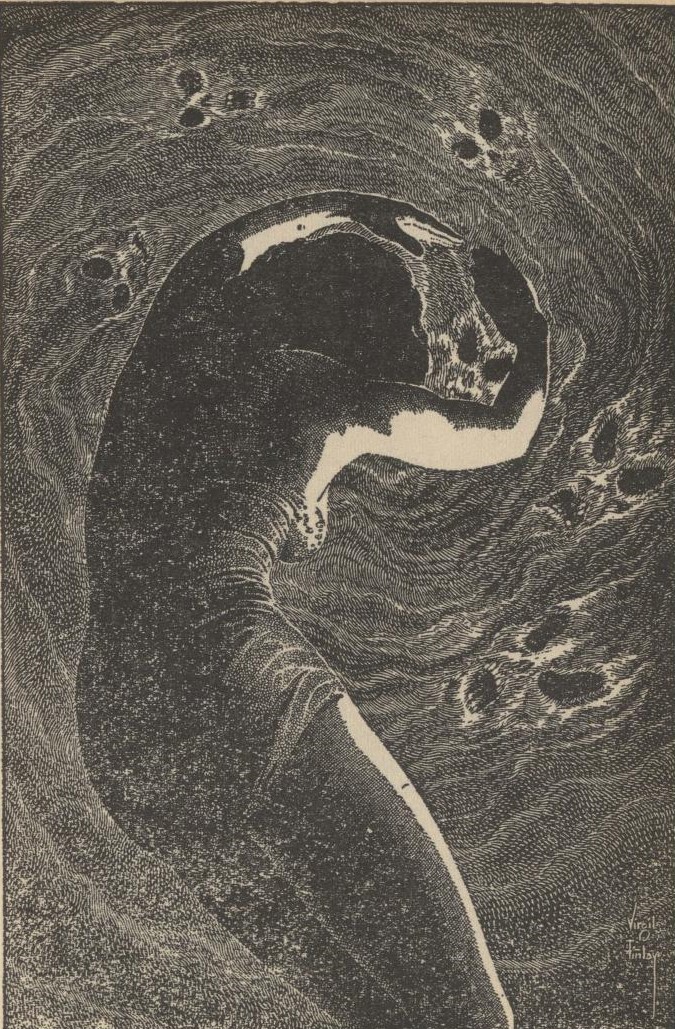

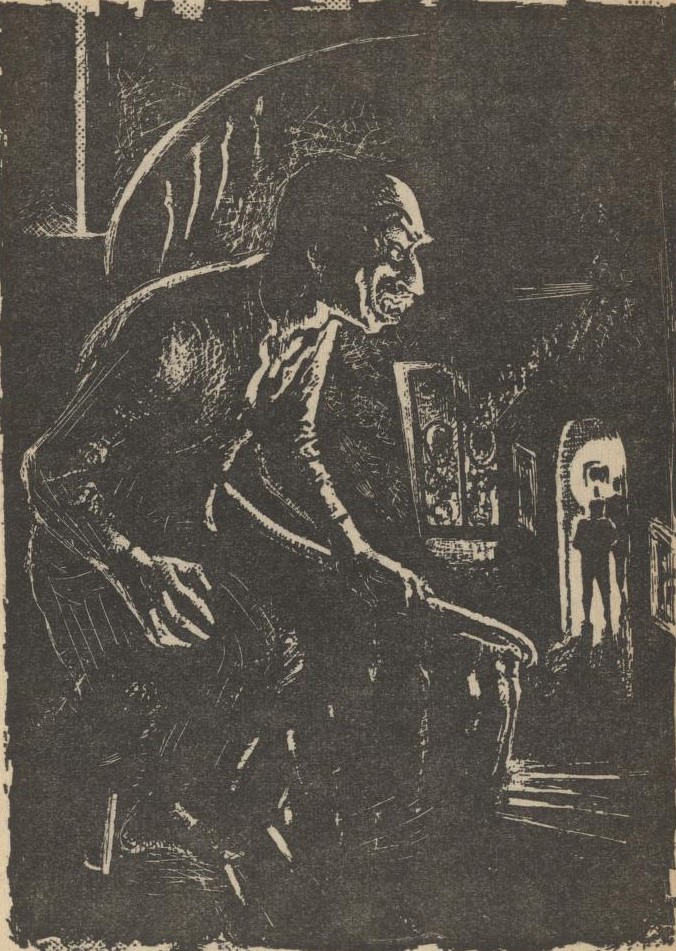
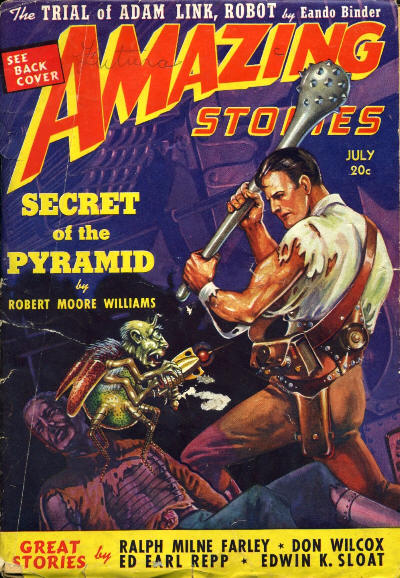

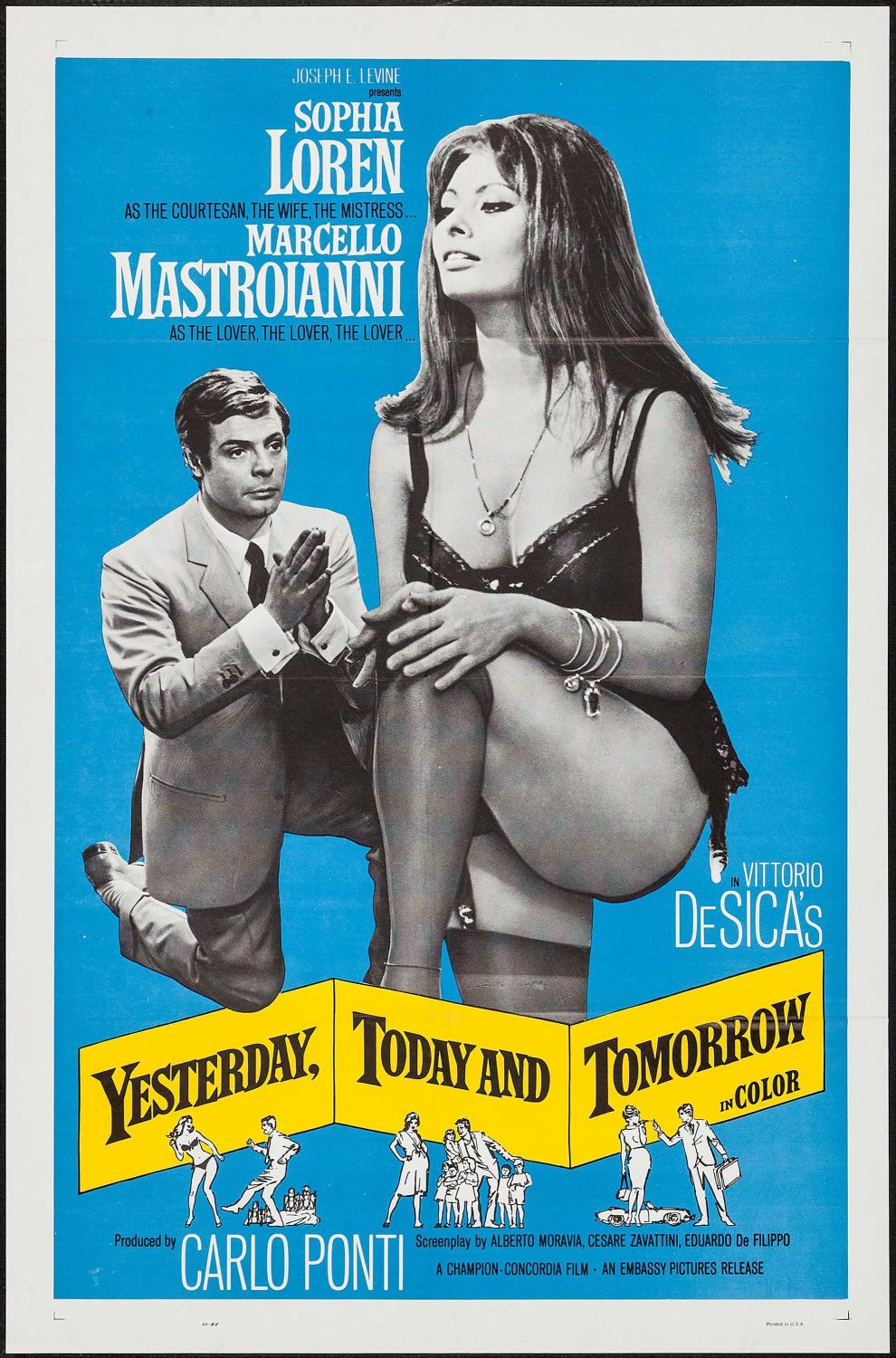

![[October 18, 1965] Turn, Turn, Turn (November 1965 <i>Fantasy & Science Fiction</i>)](https://galacticjourney.org/wp-content/uploads/2020/10/651018cover-672x372.jpg)






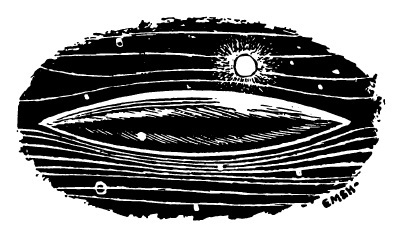
![[October 2, 1965] Gimmickry (November 1965 <i>IF</i>)](https://galacticjourney.org/wp-content/uploads/2020/09/1965-11-IF-cover-645x372.jpg)




![[September 30, 1965] Big and Little Bangs (October 1965 <i>Analog</i>)](https://galacticjourney.org/wp-content/uploads/2020/09/650930cover-672x372.jpg)




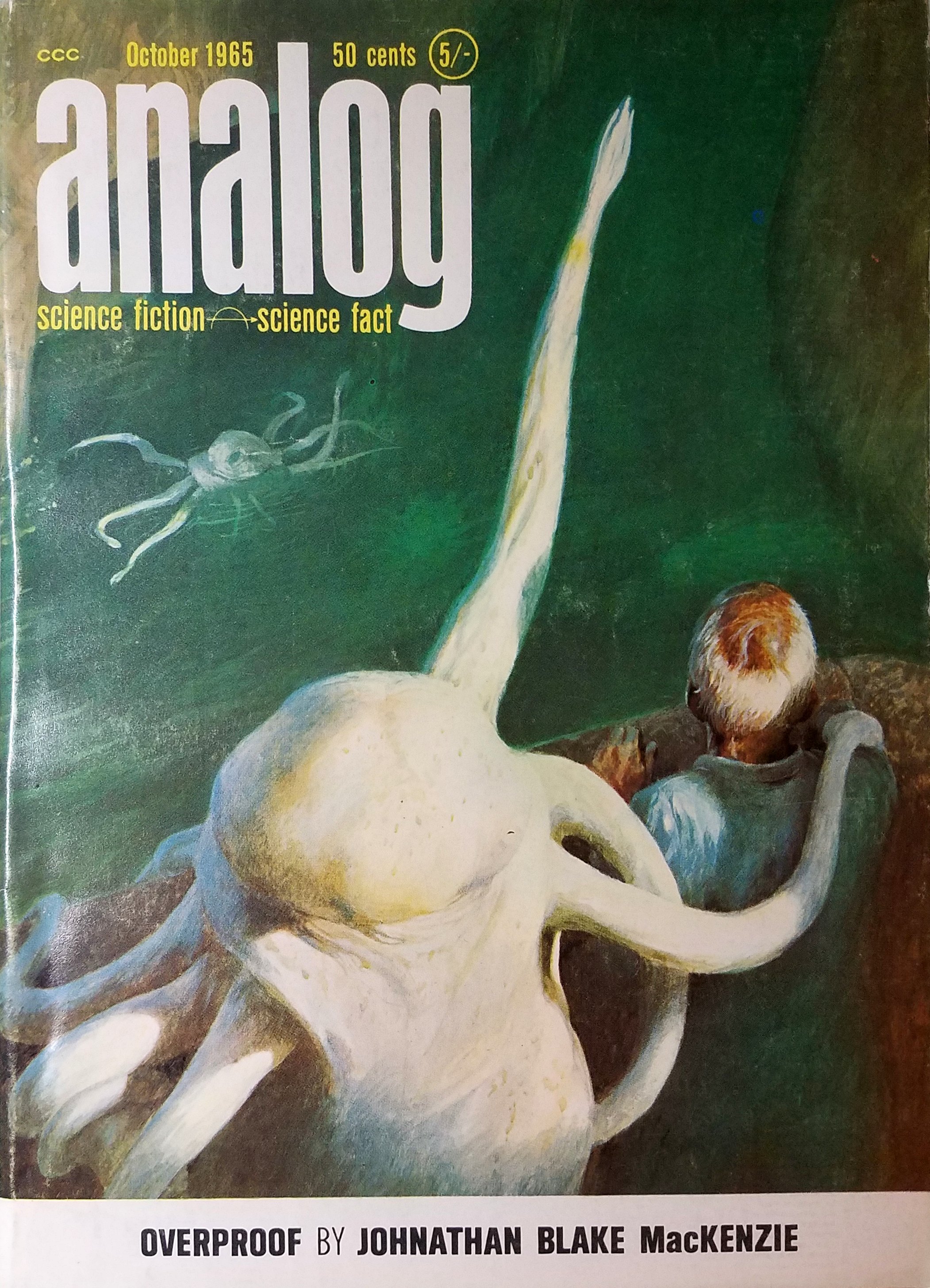
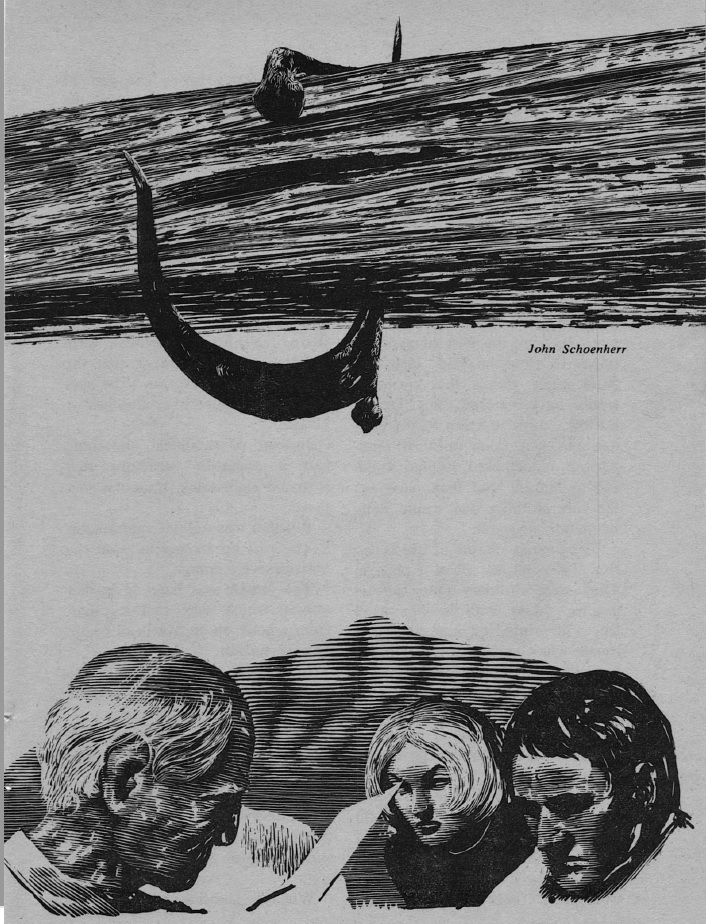
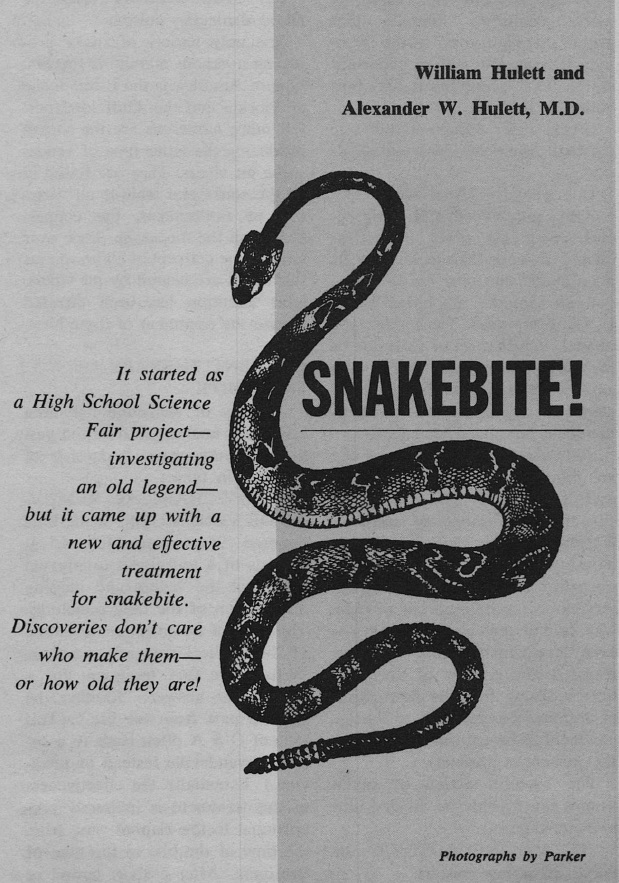
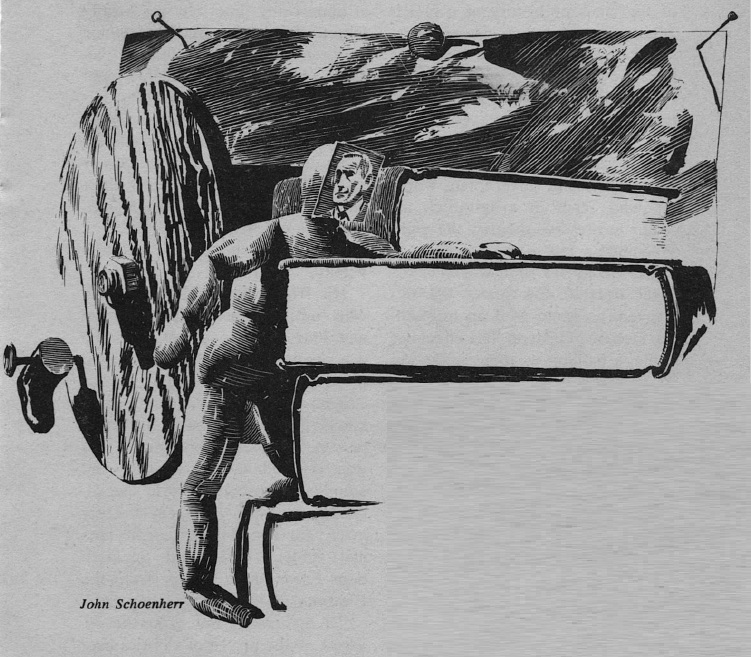
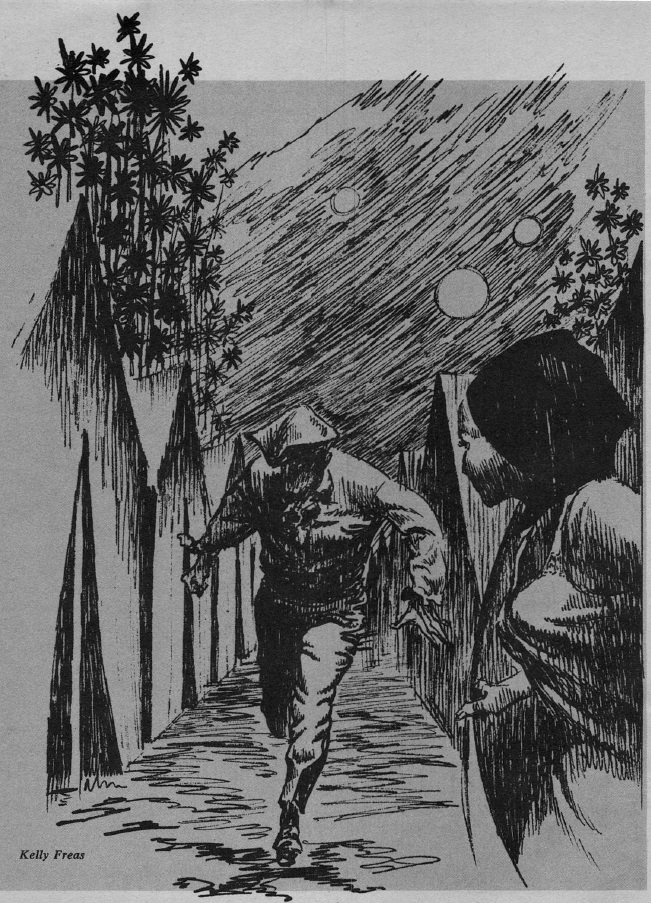


![[September 26, 1965] Allegory and Mythology <i>Science Fantasy</i> and <i>New Worlds</i>, October 1965](https://galacticjourney.org/wp-content/uploads/2020/09/sf-nw-october-1965-672x372.png)

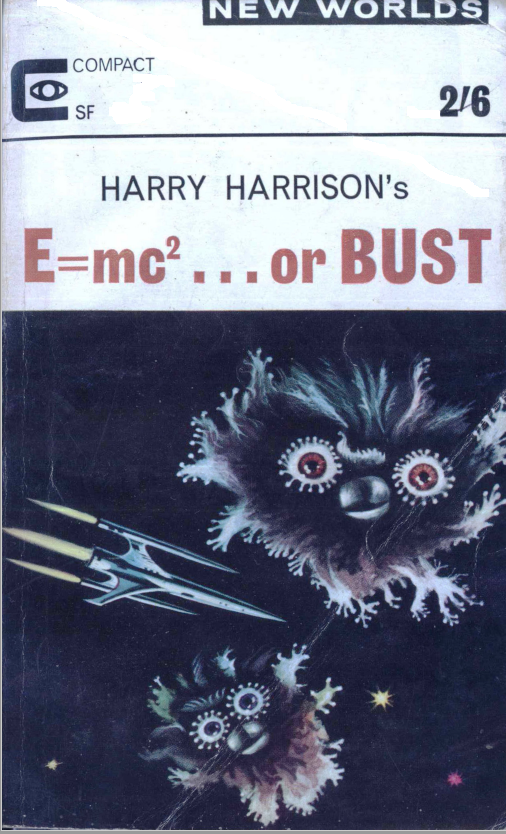


![[September 22, 1965] Foul! (September Galactoscope)](https://galacticjourney.org/wp-content/uploads/2020/09/650922covers-656x372.jpg)




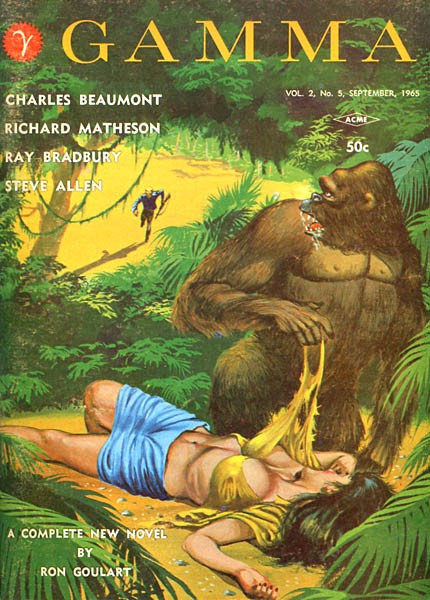
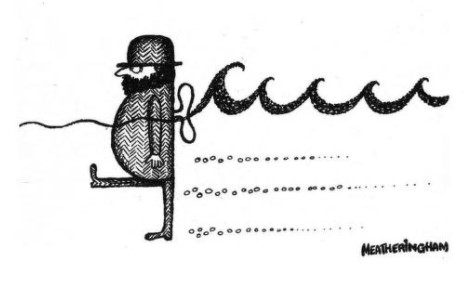
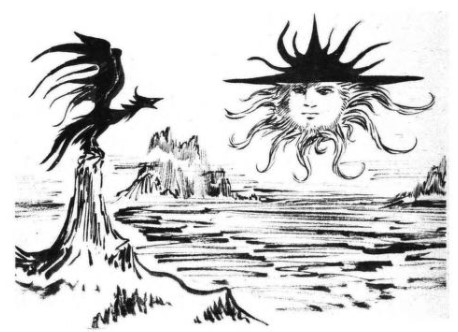
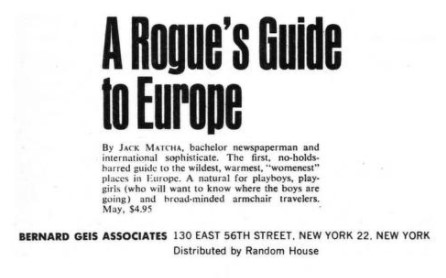
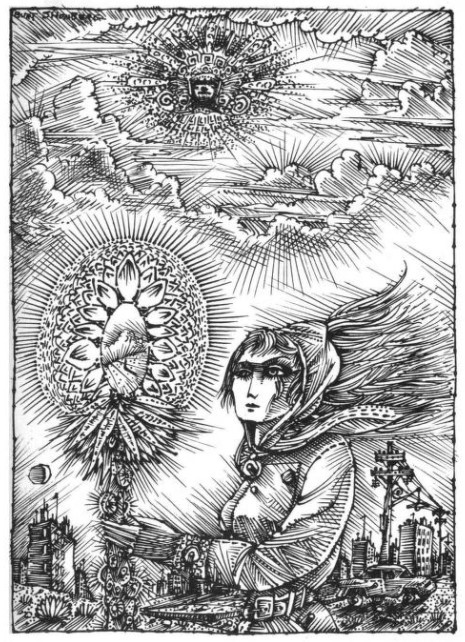

![[September 20, 1965] Unfinished Business (October <i>Fantasy and Science Fiction</i>)](https://galacticjourney.org/wp-content/uploads/2020/09/650920cover-672x372.jpg)


![[September 16, 1965] Blessed Are The Peacemakers (November 1965 <i>Worlds of Tomorrow</i>)](https://galacticjourney.org/wp-content/uploads/2020/09/Worlds_of_Tomorrow_v03n04_1965-11_0000-2-395x372.jpg)



















![[September 14, 1965] The Face is Familiar (October 1965 <i>Galaxy</i>)](https://galacticjourney.org/wp-content/uploads/2020/09/650914cover-551x372.jpg)







